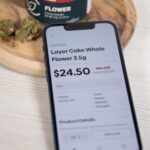In a retail landscape defined by personalization, convenience, and fierce competition, loyalty programs are undergoing rapid transformation. From multinational giants like Target and Sephora to boutique wellness brands and food delivery services, the core idea remains consistent: retaining customers by offering value beyond the transaction.
As the cannabis industry emerges into mainstream commerce, it faces a familiar challenge—how to turn casual buyers into loyal customers. And while the regulatory environment adds complexity, the evolving loyalty tactics used by established retail sectors provide a blueprint for innovation. Here’s what cannabis operators can learn from broader retail loyalty trends—and how the industry can apply them to carve out long-term customer relationships.
1. Personalization is the Standard, Not the Perk
Retailers across industries have embraced data-driven personalization to increase loyalty. Brands like Amazon and CVS use predictive analytics and behavioral data to recommend products, trigger reminders, and deliver tailored offers directly to the consumer.
In the cannabis space, this level of personalization is just beginning to take hold. Most loyalty programs today offer static discounts or point accrual systems. But by leveraging data from POS systems, dispensaries can recommend specific products based on a customer’s past purchases, the time of day they typically shop, or even their consumption preferences. As in big retail, relevance drives results.
2. Gamification Builds Emotional Engagement
Retail loyalty programs are increasingly blending utility with entertainment. Starbucks Rewards and Nike’s SNKRS app have redefined what customer engagement looks like, using points, levels, and challenges to make loyalty fun—and addictive.
Cannabis retailers should embrace similar strategies. Points for completing product reviews, reaching certain spending thresholds, or exploring new product categories can keep engagement high. Reward tiers like “Rookie,” “Regular,” and “Veteran” not only foster a sense of progression but can also deepen brand affinity.
3. Omnichannel Integration Is No Longer Optional
In leading retail ecosystems, loyalty is fully integrated across online and in-store experiences. Apps and websites are synced in real time, ensuring customers can track points, redeem offers, or receive updates no matter where or how they shop.
Cannabis brands, particularly those offering both delivery and in-store options, must adopt a seamless omnichannel approach. A loyalty program should function whether a customer is ordering edibles from their phone or buying flower at a physical location. This consistency reinforces trust and increases lifetime value.
4. Loyalty is Behavior-Based, Not Just Transactional
While traditional programs focused on purchase frequency, modern retail brands recognize that loyalty is also built through interaction. Sephora and REI, for example, reward customers for writing reviews, referring friends, and engaging on social media.
Cannabis companies can adopt similar practices by rewarding educational engagement—such as completing cannabis literacy modules or attending product demos—or offering perks for advocacy and referrals. This expands the scope of loyalty beyond purchases and fosters a sense of community.
5. Transparent Data Use Builds Trust
Retailers that prioritize data ethics are earning consumer trust in an age of increasing privacy concerns. Apple’s clear policies and opt-in data permissions set a gold standard. In cannabis, where customers may still be cautious due to legal gray areas and stigma, transparency is even more crucial.
Operators should clearly communicate how loyalty data is used, give customers control over their information, and ensure privacy standards are not just compliant—but reassuring.
Conclusion: Loyalty as a Strategic Differentiator
The future of retail loyalty lies in customer experience, not just coupons. As the cannabis market scales, dispensaries and brands have the opportunity to redefine loyalty on their own terms—borrowing proven tactics from traditional retail, while tailoring them to fit the needs and behaviors of modern cannabis consumers.
The lesson from big retail is clear: loyalty isn’t a standalone feature—it’s a strategic ecosystem. Those who evolve their programs beyond discounts and into dynamic, data-informed, omnichannel experiences will win not just transactions—but trust and long-term brand equity.






